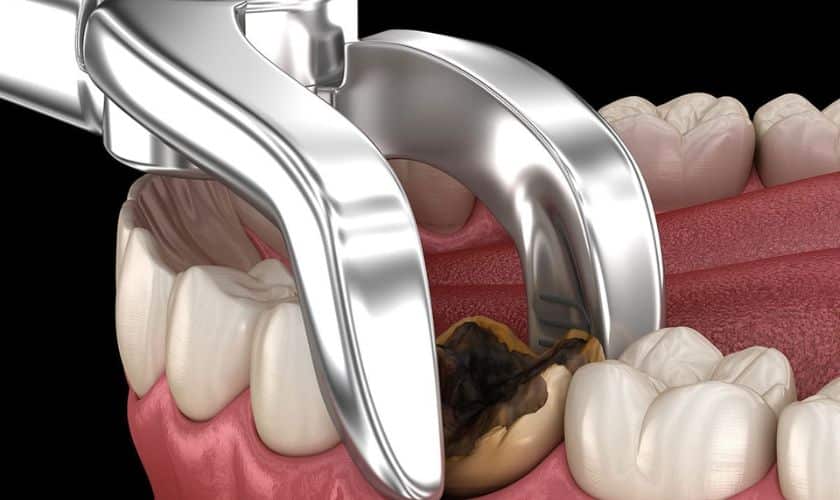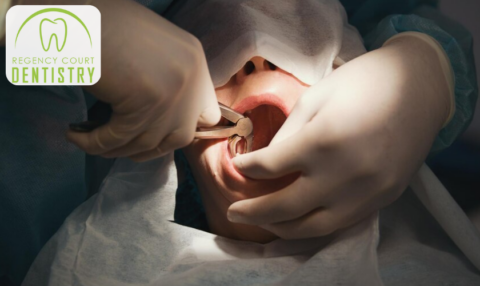Checking Out Various Sedation Options for a Comfortable Wisdom Teeth Removal Experience
The use of sedation throughout such procedures has become increasingly usual to ease anxiousness and discomfort. With an array of sedation choices offered, from regional anesthesia to basic anesthesia, each method provides varying levels of relaxation and pain control.
Neighborhood Anesthesia
Neighborhood anesthesia is a generally utilized approach for numbing particular locations of the mouth throughout knowledge teeth extraction treatments. By administering a regional anesthetic, such as lidocaine, a dental professional can guarantee that the person stays pain-free and comfortable throughout the removal procedure. Local anesthetic works by briefly obstructing the nerves in the mouth, avoiding them from sending discomfort signals to the mind. This enables the dental professional to perform the extraction without creating any pain to the person.
Among the key advantages of neighborhood anesthetic is its targeted numbing effect, which implies that just the particular location being dealt with is influenced. This local technique minimizes the risk of systemic negative effects and permits a quicker recovery post-procedure. Additionally, local anesthesia is thought about to be a routine and safe method in dental care, with marginal threats involved when provided by an experienced specialist.
Laughing Gas
Nitrous oxide, typically recognized as giggling gas, is a form of sedation usually made use of in dental care to assist patients loosen up during oral procedures. This sedation option permits the patient to remain responsive and conscious throughout the treatment while feeling at convenience and comfortable.
When the mask is eliminated, the effects of the gas use off swiftly, permitting individuals to resume their regular tasks without sticking around sedative effects. Nitrous oxide is ideal for clients of all ages, making it a versatile sedation option for wisdom teeth extractions and various other dental procedures.
Dental Sedation
Dental sedation, a medicinal technique employed in dentistry, involves the management of sedative medications by mouth to induce a kicked back state during oral treatments. The drugs recommended for oral sedation belong to a class of drugs called benzodiazepines, which have sedative, anxiolytic, and amnesic residential or commercial properties.
One of the primary advantages of oral sedation is its ease of administration. Unlike intravenous sedation, dental sedation does not need needles or injections, making it a much more comfortable alternative for individuals with an anxiety of needles. Additionally, dental sedation is taken into consideration safe and effective when carried out by skilled dental specialists. It is vital for clients to follow pre-operative directions given by their dental practitioner, such as refraining from eating or consuming alcohol before the treatment to guarantee the sedative medication functions as intended.
IV Sedation
Provided intravenously by trained clinical specialists, IV sedation is a powerful technique utilized to induce a controlled state of deep relaxation and unconsciousness during oral treatments. Unlike dental sedation, which can be unpredictable in its effects, IV sedation enables precise control over the degree of sedation, making it a perfect choice for complicated treatments like knowledge teeth removals.
Throughout IV sedation, a sedative medicine is delivered directly into the blood stream via a blood vessel, permitting it to work promptly and efficiently. This method makes sure that the individual stays comfortable and uninformed of the treatment while still keeping essential features such as breathing and heart price.
Among the main benefits of IV sedation is its capability to give a deeper degree of sedation contrasted to other approaches, making it particularly ideal for patients with high degrees of anxiety or those see this page undergoing comprehensive go now dental work (wisdom teeth removal aspendale). Furthermore, the results of IV sedation generally disappear gradually after the procedure, reducing the chance of grogginess or sticking around side results. Overall, IV sedation provides a safe and reliable choice for guaranteeing a comfortable and worry-free experience during wisdom teeth removal

General Anesthetic
Having actually gone over the benefits of IV sedation for wisdom teeth removal, the utilization of basic anesthesia provides an alternative choice for individuals requiring a much deeper degree of unconsciousness throughout dental treatments. General anesthesia induces a regulated state of unfamiliarity, guaranteeing the client really feels no discomfort or discomfort during the extraction process. This approach is especially useful for people with extreme oral anxiety, complicated medical requirements, or those going through numerous removals concurrently.
General anesthesia is administered by a qualified anesthesiologist who very closely monitors the client's crucial signs throughout the procedure. It includes using intravenous drugs or breathed in gases to induce a state of unconsciousness. While under basic anesthetic, the patient will not recognize the surgery, experience any pain, or have any kind of recollection of the treatment later.
Although general anesthesia is risk-free when provided by certified specialists, it brings a slightly higher danger contrasted to other sedation review choices - wisdom teeth removal aspendale. Clients taking into consideration basic anesthetic for wisdom teeth extraction should talk about the potential threats and benefits with their dental expert or oral doctor to make an informed decision based on their specific needs and case history

Final Thought
In final thought, various sedation alternatives are offered to guarantee a comfortable knowledge teeth removal experience. Oral sedation and IV sedation deal deeper degrees of relaxation, depending on the client's demands.
Nitrous oxide is appropriate for patients of all ages, making it a flexible sedation alternative for knowledge teeth extractions and various other dental procedures.
